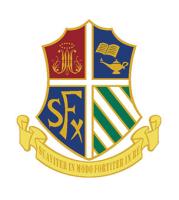| Language Policy |
1. English Language has been adopted as the medium of instruction since the establishment of our school in 1955.<br>2. From F.1 to F.3, all subjects are taught in English except for Chinese Language, Chinese History and Putonghua.<br>3. From F.4 to F.6, all subjects are taught in English except for Chinese Language, Chinese History, Visual Arts, Citizenship and Social Development, Ethics and Religious Studies, school-based Religious Studies and Moral & Civic Education. |
| Learning and Teaching Strategies |
1. The practice of collaborative lesson planning in the core subjects and peer lesson observation is fostered to promote teaching effectiveness.<br>2. ‘Assessment for learning’ is emphasized and diversified forms of formative assessment are arranged timely throughout the academic terms.<br>3. To boost students’ academic achievement, there is a regular test system for all forms. Enhancement and remedial courses, study skills workshops and tutorial classes are also organized for the students of different levels.<br>4. Small-class teaching is fully implemented in all junior form classes. Enhancement courses in major subjects are organized for the higher achievers, while remedial classes are conducted for less able students. Tutorial classes for revision purposes are held after school and before the final examination respectively.<br>5. For Senior Secondary, enhancement courses are organized for the more able students. Tutorial and remedial classes are held during the post-examination period and summer holiday respectively.<br>6. Giving opportunities to all F.3 students to experience all Senior Secondary subjects and having a wide variety of elective subject combinations allow students to be in a better position to choose their favorite subjects according to their own interest to plan for their future studies and career paths.<br>7. Tablet computers and various online platforms are adopted to raise the learning and teaching effectiveness. |
| School-based curriculum |
1. Electives: 3X. Senior Secondary students have to study three elective subjects out of eleven.<br> 2. Curriculum highlights: The curriculum of junior levels has been re-structured to allow smooth transition towards the senior secondary curriculum. Integrated Humanities and Science has tight cross-curricular collaboration with English Language to enhance students’ capabilities of using English in content subjects. |
| Approach to Catering for Learner Diversity |
1. For Junior Secondary, there are elite classes and ordinary classes, and small-class teaching is implemented in all Forms 1 to 3 classes. Enhancement courses in major subjects are organized for the higher achievers, while remedial classes are conducted for less able students. Tutorial classes for revision purposes are held before the final examination.<br>2. For Senior Secondary, enhancement courses are organized for the more able students. Tutorial and remedial classes are held during the post-examination period and summer holiday respectively.<br>3. We have designated a Special Education Needs (SEN) Coordinator under the Counselling Committee of the school to coordinate support measures for students with SEN students. A host of school-based professionals, including an education psychologist, social workers, a psychiatric nurse and a speech therapist, also station in the school regularly to provide support for our students. |
| Approach to Integrated Education |
There is a working group under the Counselling Committee of the school for coordinating all supportive measures for the students with Special Education Needs (SEN). In recent years, various measures such as Social Development Group, Emotional Regulation Group, Career Planning Workshops and individual guidance have been added to enrich their all-round development. Moreover, adjustments in examinations are arranged on an individual basis. Apart from the aforementioned groups for students, a group has also been organized for the parents of SEN students to empower them to cope with their sons’ educational needs. Finally, professions, including a school-based educational psychologist, a speech therapist and a counselling psychologist, also station in the school regularly to provide additional support for our students. |
| Education Support for Non-Chinese Speaking (NCS) Students |
|
| Home-School Co-operation |
All teachers are members of PTA, and six teachers are Committee members of PTA. A PTA bulletin is published on regular basis for all parents and teachers. There is a wide variety of functions held each year, including Parents' Gatherings for each form, the annual picnic, the Parents Day and seminars of different topics. PTA also participate school functions e.g. Caritas Bazaar, Healthy Living week, etc. and contributes scholarship to students with outstanding academic performance. |
| School Ethos |
With a cohesive school community, a harmonious relationship has been established between teachers and students. Students and Alumni all have student sense of belonging to their alma mater. We emphasize ‘Autonomy, Self-discipline and Respect’ We prefer counseling and giving advice to punishment or reprimand. The school campus is open all year round so that students can always come back for their studies and take part in various activities. |
| School Development Plan |
In the School Development Plan of 2021-2024, the major concerns are as follows: <br>1. To further stretch students' academic potential through promoting self-directed learning.<br>2. To promote the well-being of the Xaverian Family and equip them for challenges in life. |
| Teacher Professional Training and Development |
The school encourages teachers to attend the training courses related to the needs of their teaching profession. In recent years, the school has arranged various interflow and exchange opportunities for teachers to enhance their teaching effectiveness. Our school also works with the School-based Support Services, EDB, to assist us to make use of e-learning strategies to foster our students’ capability in independent learning. |
| Life-wide Learning |
We believe that Co-curricular activity is an essential part of whole-person education. By taking part in them, students learn how to co-operate with other people, and their horizons of knowledge will be broadened. Our activities include sports team, school bands, instrumental groups, uniform and social services groups, inter-club, inter-house and inter-school functions and competitions, and a variety of courses all the year round. To develop their aesthetic potential, all Form One and Two students has to join our ‘Xaverians Project’. |
